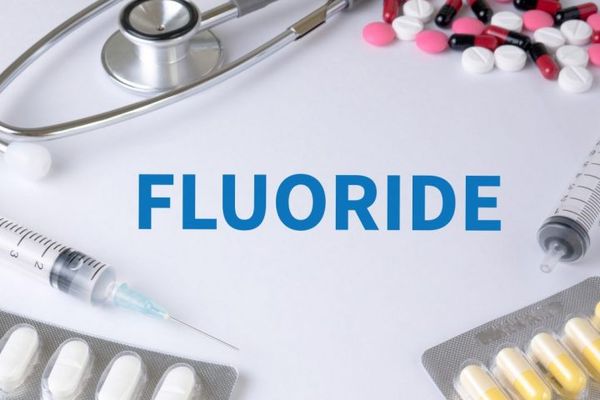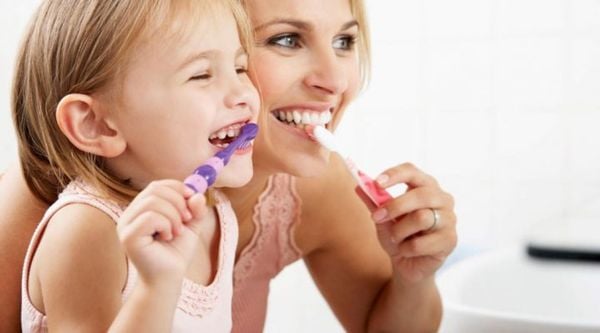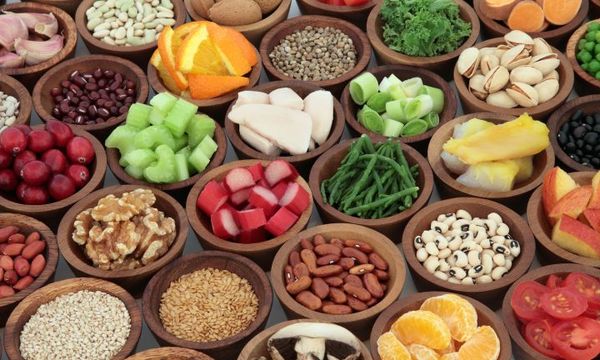6 useful tips for family's oral care
To keep your family healthy with a bright smile, you need to pay attention to your entire family's dental care, in addition to personal care. This will bring many benefits, not only to make teeth healthy teeth but also to prevent a variety of health risks. Here are some helpful oral care tips for children as well as the elderly.

1. Brush your baby's teeth early
Research shows that one out of four children will have signs of cavities before they reach school age. Half of all children between the ages of 12 and 15 have cavities. “Dental care should begin as soon as a child’s first tooth appears, usually around six months,” Caryn Solie, RDH, president of the American Dental Hygienists’ Association, tells WebMD.
Teeth can be wiped with a clean, damp cloth or a very soft brush. At about age 2, you can let kids try brushing for themselves -- although it’s important to supervise.
2. Use enough fluoride
The single biggest advance in oral health has been fluoride, which strengthens enamel, making it less likely to decay. You can add fluoride to your teeth by using fluoride toothpaste, mouth rinses, drinking fluoridated water, or seeking advice from a dentist.

However, use enough rather than overuse this substance. Fluoride should be used sparingly in young children -- no more than a pea-sized dab on the toothbrush. Too much can cause white spots on teeth.
3. Brush twice a day and floss daily
Gum disease and tooth decay remain a big problem for all ages. Not only the elderly but the majority of teenagers have bleeding gums. Therefore, besides the basic cleaning tips, remember:
- Toothbrushes should be changed 3 to 4 times a year.
- Teenagers with braces may need to use special toothbrushes and other oral hygiene tools to brush their teeth. Talk to your dentist or orthodontist.

- Older people with arthritis or other problems may have trouble holding a toothbrush or using floss. Some people find it easier to use an electric toothbrush. Others simply put a bicycle grip or foam tube over the handle of a regular toothbrush to make it easier to hold.
4. Rinse or chew gum after meals
In addition to brushing and flossing, rinsing your mouth with an antibacterial rinse can help prevent decay and gum problems. Chewing sugar-free gum after a meal can also protect by increasing saliva flow, which naturally washes bacteria away and neutralizes acid.
5. Eat smart
At every age, a healthy diet is essential to healthy teeth and gums. A well-balanced diet of whole foods - including grains, nuts, fruits and vegetables, and dairy products - will provide all the nutrients you need.

Some researchers believe that omega-3 fats, the kind found in fish, may also reduce inflammation, thereby lowering risk of gum disease. Limit foods containing sugar and carbonated beverages.
6. Periodic dental checkups
Most experts recommend a dental check-up every 6 months - more often if you have problems like gum disease. During a routine exam, your dentist or dental hygienist removes plaque build-up that you can’t brush or floss away and look for signs of decay. A regular dental exam also spots:
Source: WebMD
My Hang


